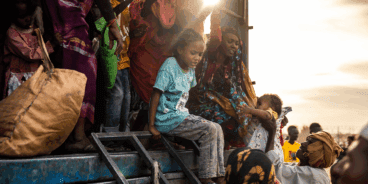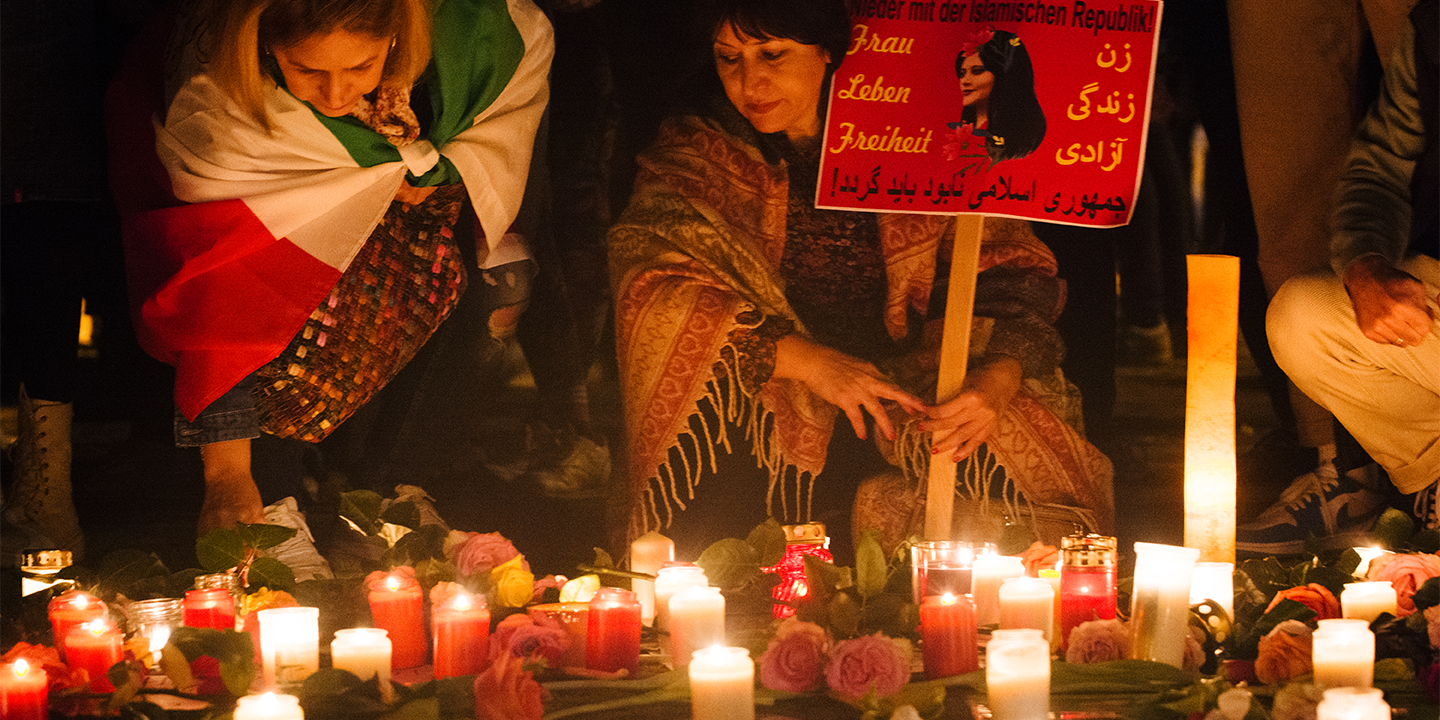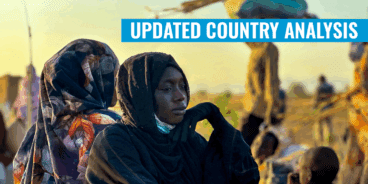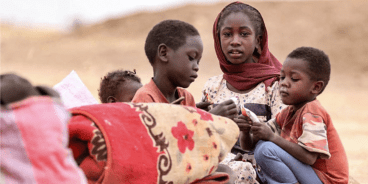

Atrocity Alert No. 327: Iran, Afghanistan and China
Atrocity Alert is a weekly publication by the Global Centre for the Responsibility to Protect highlighting situations where populations are at risk of, or are enduring, mass atrocity crimes.
UN HUMAN RIGHTS COUNCIL ESTABLISHES FACT-FINDING MISSION FOR IRAN
On 24 November the UN Human Rights Council (HRC) established an independent, international fact-finding mission (FFM) to thoroughly and independently investigate alleged human rights violations related to the protests that have taken place in Iran since 16 September. Prior to the vote to establish the FFM, the HRC held a Special Session on “the deteriorating situation of human rights in the Islamic Republic of Iran, especially with respect to women and children.” The resolution was adopted by a vote of 25 in favor, 6 against and 16 abstentions.
The wave of peaceful protests in Iran began after the death of 22-year-old Mahsa Amini, who was arrested by the so-called morality police on 13 September for allegedly violating Iran’s strict requirements on women’s dress. Reports suggest that her death was due to alleged torture and ill-treatment. Since then, Iranian security forces have responded to ongoing protests with lethal force, including live ammunition with firearms and metal pellets, against unarmed demonstrators and bystanders. The crackdown has resulted in over 300 people killed, including at least 40 children, with minority regions disproportionately affected by casualties. Around 14,000 protesters, human rights defenders, civil society activists, journalists, university students and school children have been arbitrarily arrested and detained in connection with the demonstrations. At least 21 people who were arrested are now facing the death penalty. Iranian authorities have also disrupted internet access in large parts of the country, marking the third widespread internet shutdown recorded over the last year in Iran.
In addition to conducting investigations, the new FFM is mandated to collect and preserve evidence of such human rights violations and abuses, which may be used for potential future legal proceedings. The UN High Commissioner for Human Rights, Volker Türk, called for independent, impartial and transparent investigative processes, noting that, “The current situation is untenable… These protests are rooted in long-standing denials of freedoms… Persistent impunity for human rights violations remains one of the major challenges in Iran, further fueling discontent and distrust… Accountability is a key ingredient of the pursuit of justice for human rights violations.”
The FFM will present an oral update at the 53rd session of the HRC, as well as a comprehensive report on its findings during an interactive dialogue at the 55th session. UN member states should ensure immediate operationalization of the FFM with sufficient resources to carry out its mandate. The government of Iran should cooperate fully with the mechanism and ensure unhindered access to the country. Iranian authorities should immediately release all those detained in relation to the protests, revoke death sentences issued against protesters and ensure security forces abide by international standards.
VIOLATIONS AGAINST WOMEN IN AFGHANISTAN MAY AMOUNT TO CRIMES AGAINST HUMANITY
The Taliban de facto authorities’ targeting of women and girls in Afghanistan may amount to gender persecution – a crime against humanity – according to a group of UN Special Procedures mandate holders. The UN Special Rapporteurs on the situation of human rights in Afghanistan, in the field of cultural rights, on the right to education, on the Rights to Freedom of Peaceful Assembly, and on the situation of human rights defenders, as well as the Working Group on discrimination against women and girls, issued a statement on 25 November drawing attention to the dramatic increase in violations of women and girls’ fundamental rights and freedoms, asserting that these actions by Taliban de facto authorities in recent months have deepened “draconian restrictions” on their rights.
Since retaking control of Afghanistan in August 2021, Taliban de facto authorities have imposed a sweeping series of decrees that severely restrict women and girls’ rights to fully participate in public and daily life, including restrictions on freedom of movement and expression, employment opportunities and access to education and healthcare. Approximately 1.1 million secondary school girls have been affected by a ban on secondary schooling for girls. The group of UN Special Procedures emphasized that confining women and girls to their homes is “tantamount to imprisonment and is likely leading to increased levels of domestic violence.”
Men have also been brutally punished by the Taliban for offenses purportedly committed by their female relatives, which the UN Special Procedures described as instrumentalizing one gender against another and compelling “men and boys to punish women and girls who resist the Taliban’s erasure of them, further depriving them of their rights, and normalising violence against them.”
Women’s rights activists and human rights defenders have faced killings, enforced disappearances, incommunicado detention, attacks, harassment, threats and arrests. Those peacefully protesting the growing restrictions on their rights have also been targeted, beaten and arrested. In June then UN High Commissioner for Human Rights, Michelle Bachelet, stressed, “What we are witnessing today in Afghanistan is the institutionalised, systematic oppression of women.”
Afghanistan has ratified several international treaties, including the Convention on the Elimination of All Forms of Discrimination Against Women (CEDAW). As the de facto authorities, the Taliban bear the primary responsibility to uphold the international human rights obligations codified under treaties to which Afghanistan is a state party, including CEDAW. Taliban de facto authorities must immediately reverse all restrictions on women and girls’ rights and ensure their respect and protection. The international community should take steps to investigate and prosecute those responsible for gender persecution in relevant jurisdictions, as well as increase support to Afghan human rights defenders, especially women and girls.
UN COMMITTEE ON RACIAL DISCRIMINATION CONDEMNS UYGHUR HUMAN RIGHTS CRISIS
In a watershed ruling on 24 November, the UN Committee on the Elimination of Racial Discrimination (CERD) strongly condemned China’s human rights violations in the Xinjiang Uyghur Autonomous Region (XUAR) and called for the government to immediately investigate all allegations of violations. CERD also referred the situation to the Special Adviser of the UN Secretary-General on the Responsibility to Protect, marking the first time the Committee has referred a situation to the UN Office on Genocide Prevention and R2P. CERD monitors the compliance of states that have ratified the 1965 International Convention on the Elimination of All Forms of Racial Discrimination, which includes China. Acting under its “early warning and urgent action procedure,” CERD adopted this rare decision due to the lack of improvement in the human rights situation in XUAR.
In recent years the Chinese government and authorities in XUAR have increased their persecution of ethnic Uyghurs and individuals from other majority-Muslim ethnic groups under the guise of combatting religious extremism and terrorism. Over 1 million people, mainly Uyghurs, have been arbitrarily detained in “re-education” or “de-extremification” facilities since around 2017. The systematic persecution of Uyghurs and other majority-Muslim ethnic groups in China may amount to crimes against humanity and genocide. In its ruling, CERD noted that it was “alarmed by the allegations of torture or ill-treatment, forced labour, sexual violence, arbitrary detention and related patterns of abuse” in XUAR, echoing concerns issued by other UN officials and mechanisms. The Committee expressed concern about “policies and practices leading to forced displacements, separation of families and the severing of human contacts,” which cause “particular suffering to affected Uyghur and other ethnic Muslim communities.”
CERD urged the Chinese government to release all people being arbitrarily detained and implement the recommendations included in the former UN High Commissioner for Human Rights’ report on the situation in XUAR, which concluded that the Chinese government may be perpetrating crimes against humanity. CERD also reminded other UN member states of their responsibility to respond to serious human rights violations.
Savita Pawnday, Executive Director of the Global Centre for the Responsibility to Protect, said, “We commend CERD’s decision to refer the situation in XUAR to the UN Special Adviser on R2P, which underscores the gravity of the atrocity situation for Uyghurs and other majority-Muslim ethnic groups in China. The Special Adviser should brief the Secretary-General and UN member states and include the matter in his annual report to the General Assembly on R2P.”
Related Content


